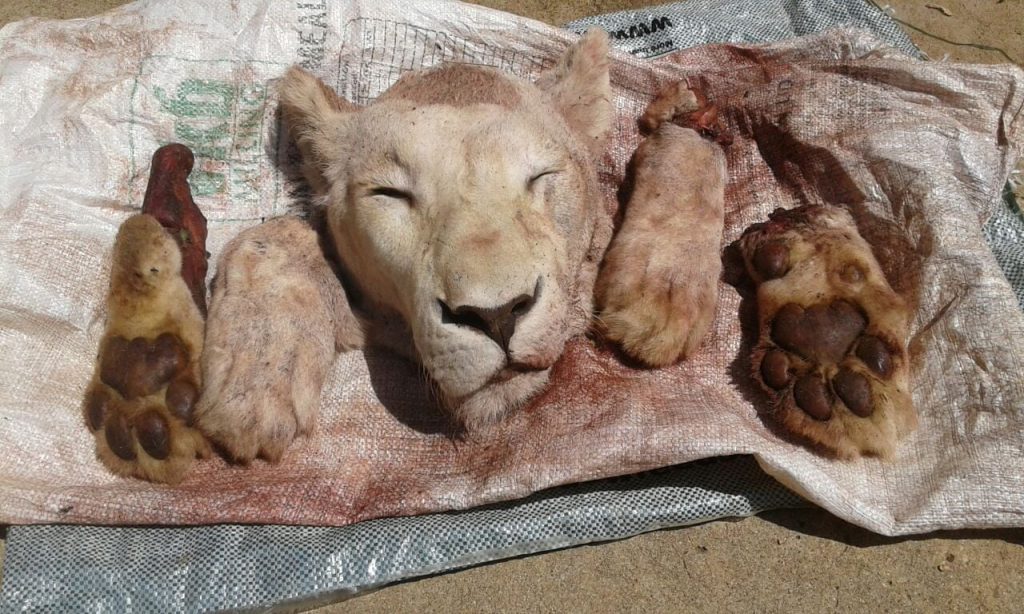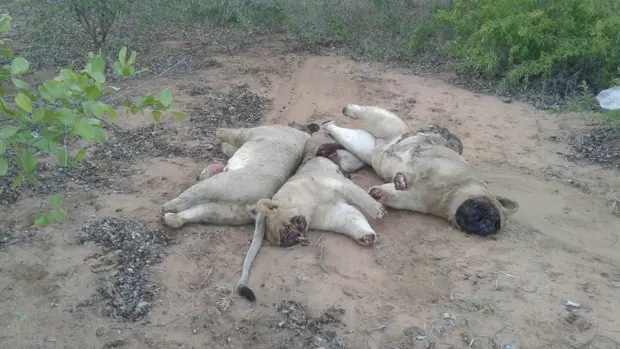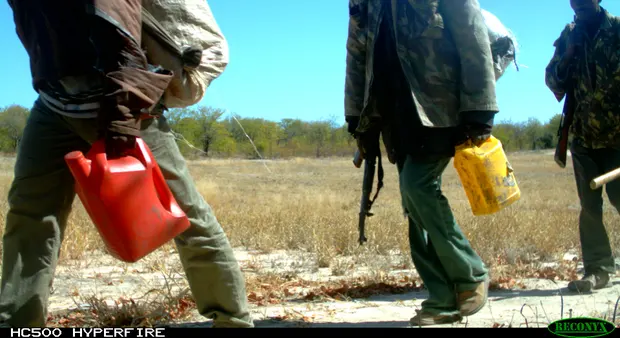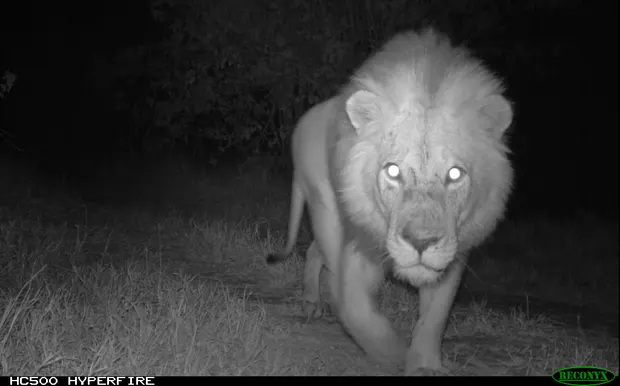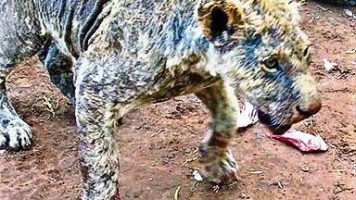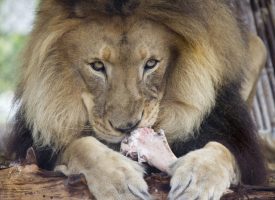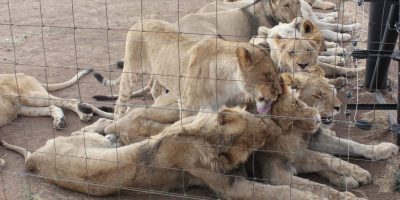Lion poaching: the brutal new threat to Africa’s Lion prides – The age of extinction
Warning: Some pictures could upset readers!
You didn’t expect that selling parts and bones from captive Lions boost poaching? Think AGAIN! The big cats are horribly easy to kill with poisoned meat, allowing poachers to hack off their faces and paws – but rangers are now on their trail.
Panthera researcher Kris Everatt says, “poaching has the potential to be incredibly detrimental to Africa’s wild lions. This is something we definitely didn’t need – another huge challenge.”
“It happened really fast in Mozambique, and it will happen really fast in the rest of Africa. “We could end up with the only place left with wild lions in Africa, here in the Kruger National Park.”
Lion poaching: the brutal new threat to Africa’s prides
The big cats are horribly easy to kill with poisoned meat, allowing poachers to hack off their faces and paws – but rangers are now on their trail. The anti-poaching patrol continues its careful tracking across the parched landscape of Limpopo national park (LNP) in Mozambique. Hippos wallow nearby, crocodiles sun themselves, and baboons yell alarm calls at the rangers – but the team don’t find the lion.
Everatt, from the global wild cat conservation group Panthera, is pleased nonetheless. “I’m so happy – at least there are still lions here.” The ghost pride, who live along the Machampane river, have a very good reason for being elusive. They have been deliberately poisoned three times since 2015. Nine lions died, their faces and paws hacked off by the poachers, and Limpopo park’s lion population is in freefall.
The targeted poaching attacks are a new and horrific danger to lions, which were already under serious threat across Africa from the destruction of habitat and the snaring of their prey for bushmeat. There are now fewer lions left than elephants.
“Poaching has the potential to be incredibly detrimental to Africa’s wild lions.”
“This is something we definitely didn’t need – another colossal challenge!” says Everatt.
“It happened fast in Mozambique, and it could happen really fast in the rest of Africa,” he says. Lion poaching is rife in Zimbabwe, South Africa, Tanzania and Uganda. “You could end up with the only place left with wild lions in Africa being Kruger national park,” a well-protected refuge across the border in South Africa, he says.
The poaching problem is especially worrying because it is far easier to poach lions than elephants or rhinos. Lions scavenge, so poachers only need to snare an antelope, poison the carcass with pesticide and wait.
“I feel like I am racing the poachers to find the lions, and they have the advantage because they don’t actually have to see them,” says Everatt. “Lions are much easier to kill than to study.” Captive lions boost poaching, no doubt.
On the way back from the patrol, Everatt stops his Land Cruiser to watch African white-backed vultures circling a couple of hundred metres away – they could signal a predator kill and, perhaps, lions. Striding off, he kicks a rusted blue enamel bowl discarded in the dirt. “Poachers,” he spits.
